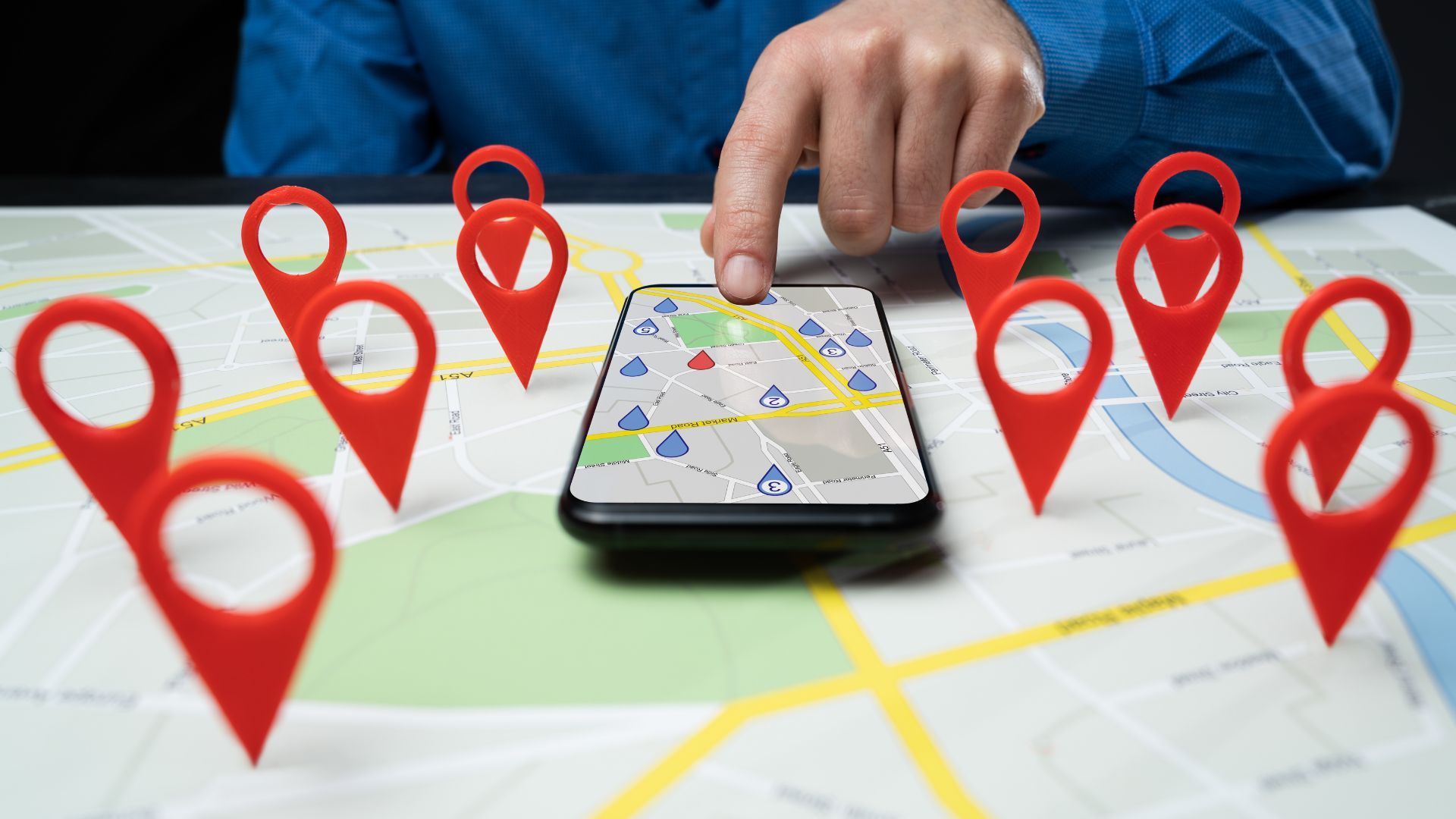Local SEO Strategies That Transform Small Business Success
Small businesses looking to boost their online presence have increasingly turned to local SEO strategies as a cost-effective method to increase brand visibility and drive retail traffic. For companies, partnering with a LevelUp Digital Agency to optimize local search results can significantly improve the return on investment and boost user experience on their web page. This article details actionable tactics in mastering local SEO—from leveraging Google Business Profile to creating locally relevant content—so that small businesses can ensure higher rankings, better customer service, and ultimately increased conversions.
The following sections will explore key strategies that address local search challenges, covering on-page optimization, citation building, online reviews, content creation, and performance tracking. Each section is supported with real-world examples, actionable insights, and data-backed recommendations to help businesses secure a more dominant presence in local search engine results pages.
Key Takeaways
- Local SEO is essential for boosting brand awareness and driving targeted retail traffic.
- A complete Google Business Profile and consistent NAP information are foundational for local search success.
- Creating locally relevant content and acquiring quality backlinks helps improve visibility and reputation.
- Regular monitoring of local search rankings and customer reviews provides the insights needed to adapt your SEO strategy.
- Effective local SEO strategies ultimately enhance customer experience and conversion rate optimization.
Mastering Google Business Profile for Local Dominance

A complete and well-managed Google Business Profile is crucial for beating competition in local searches. The first step in mastering local SEO is claiming and verifying the business profile, which not only boosts credibility but also ensures accurate local business data reflects on Google. By claiming your profile, businesses can control key details such as the business name, operating hours, location, and contact information.
Claiming and Verifying Your Google Business Profile Listing
The process begins with ensuring that your business is listed and then verifying it through methods such as phone, email, or postcard verification. Verification helps confirm the authenticity of your business in Google's local search ecosystem. Studies indicate that verified businesses enjoy up to a 70% increase in visibility compared to unverified entities, which in turn can lead to a higher click-through rate and improved customer engagement.
Completing All Sections of Your Profile With Accurate Information
Once verified, it’s essential to fill out every section of your profile. This includes a detailed business description, relevant categories, and a comprehensive list of services. High-quality and accurate information helps users and search engines understand your offerings. For instance, including specific service areas or unique aspects of your sprinkler system solutions can differentiate your business from competitors and improve your search relevance for local-based queries.
Selecting Primary and Secondary Business Categories Strategically
Choosing the correct categories ensures your business appears in relevant searches. Your primary category should accurately define your core service—in this case, "Sprinkler System"—while secondary categories can complement your primary offerings. Strategic selection impacts the algorithm in your favor by matching your profile with specific search intents and can even contribute to a higher ranking across multiple local query variations.
Uploading High-Quality Photos and Videos Regularly
Visual content plays a critical role in local searches. Regularly uploading high-quality photos and videos of your work—such as installation projects, repair operations, or seasonal maintenance—can significantly elevate user engagement. Engaging visuals not only build trust among potential customers but also improve keyword relevance for image searches.
Utilizing Google Posts to Share Updates, Offers, and Events
Google Posts are a powerful tool that allows businesses to share timely updates, special offers, and local events directly through their profile. By regularly updating posts, small businesses maintain an active presence that signals freshness to search engines. This translates into higher user engagement and can drive more foot traffic or calls to your business. For example, a timely offer for spring start-up services can increase sales conversion rates during peak seasons.
Effective on-Page SEO Techniques for Local Audiences

On-page SEO forms the backbone of any effective local strategy. This means optimizing every part of your website for local searchers. The key is to integrate local keywords into all on-page optimization aspects to boost your website's relevance and improve its overall user experience.
Conducting Local Keyword Research to Understand Searcher Intent
Local keyword research should focus on discovering terms that include location-based phrases such as “sprinkler repair in [city]” or “emergency sprinkler service near me.” By understanding the searcher’s intent, small businesses can create tailored content that directly addresses local needs and differentiates their offering from generic online information.
Optimizing Title Tags, Meta Descriptions, and Header Tags With Local Keywords
Title and header tags serve as key ranking signals for search engines. Including specific local keywords in these elements dramatically improves visibility on search engine results pages (SERPs). A well-optimized title tag may include phrases like “Best Sprinkler Service in [Your City]” ensuring the business targets the precise query. Consistent optimization across meta descriptions and header tags further reinforces the contextual relevance of your webpages.
Creating Location-Specific Landing Pages for Each Service Area
Developing dedicated landing pages for each location increases local relevance. Each page should be designed with unique content targeting the specific needs of that area. For example, one page might focus on “Commercial Sprinkler Installation in Downtown [City],” while another can target residential services in suburban locations. Such a strategy not only boosts local search rankings but also enhances user experience by offering customized content.
Ensuring Your Website Is Mobile-Friendly and Offers a Positive User Experience
Mobile optimization is no longer optional in today’s digital landscape. With the majority of local searches coming from mobile devices, it is essential to have a responsive design that loads quickly and navigates intuitively. This leads to higher visitor satisfaction and lower bounce rates. Consistently improving user experience can lead to better retention rates and higher conversion, which are crucial elements of local SEO performance.
Implementing Local Business Schema Markup for Enhanced Visibility
Using schema markup provides search engines with structured data about your business. Markup elements such as business hours, location, and contact details help your website stand out in rich snippets and improve click-through rates. A well-implemented schema can be the difference between a standard search result and a comprehensive local listing that drives more engagement.
Building a Strong Local Citation and Link Profile

Citations and backlinks play a significant role in establishing local authority. A robust local citation profile supports higher rankings and increased credibility. The process involves creating consistent data across multiple platforms and securing high-quality backlinks from reputable local sources.
Ensuring NAP (Name, Address, Phone Number) Consistency Across All Platforms
Maintaining consistent Name, Address, and Phone Number information throughout your online profiles is imperative. Any discrepancies can confuse search engines and lower your local ranking. Tools like Moz Local or BrightLocal can help monitor and manage your NAP consistency, ensuring that your business information remains accurate across directories, social media, and even your website.
Submitting Your Business to Relevant Local and Niche Directories
In addition to Google Business Profile, small businesses should list their details in local directories such as Yelp, TripAdvisor, and industry-specific databases. These citations for sprinkler services add an extra layer of authenticity and contribute to increased visibility and trust among potential customers. Regular access and updates to niche directories further cement your reputation with both users and search engines.
Leveraging Data Aggregators for Broader Citation Distribution
Using data aggregators can streamline the process of building citations. Aggregators distribute your business information across multiple platforms, ensuring broader reach and enhanced consistency. This coordinated approach not only saves time but also reinforces the trustworthiness of your business information across the web.
Acquiring High-Quality Backlinks From Local Businesses and Organizations
Local partnerships can provide valuable backlink opportunities. Collaborating with complementary businesses, such as landscaping companies or home improvement centers, can result in high-authority links. These backlinks bolster your website’s credibility and are often more relevant since they come from within your local ecosystem. Each link acts as a vote of confidence, driving both organic traffic and improved search rankings.
Monitoring and Updating Citations Regularly to Maintain Accuracy
The digital landscape is continually evolving, which means regularly auditing your citations is necessary. Ensuring that all listings are up-to-date and reflect any changes, such as newly expanded service areas or updated contact information, can prevent issues with duplicate content and misinformation. Consistent monitoring allows for quick adjustments according to algorithm changes or updates from directory sites.
Cultivating Online Reviews for Enhanced Reputation and Rankings

A positive online reputation is one of the most important assets a small business can have. Online reviews not only impact customer trust but also serve as a critical ranking factor in local SEO. Encouraging, managing, and responding to these reviews can form the backbone of a robust customer relationship management strategy for small businesses.
Encouraging Satisfied Customers to Leave Positive Online Reviews
Directly asking for feedback after service completion encourages customers to share their positive experiences. It’s beneficial to send follow-up emails or messages requesting a review. A steady influx of positive reviews signals quality service to both prospective customers and search engines. For instance, a sprinkler company can offer a small discount on future services in exchange for honest feedback, thereby stimulating customer engagement.
Responding Promptly and Professionally to All Customer Reviews
Engaging with customers by responding to reviews helps further establish your business’s credibility. Whether the reviews are positive or negative, a professional response can mitigate potential damage and exemplify commitment to customer service. Timely responses create a forum of transparency, showcasing your willingness to address issues and delight satisfied customers.
Showcasing Positive Testimonials on Your Website and Social Media
Integrating top reviews and testimonials directly into your website and social media channels reinforces customer trust. These testimonials can act as social proof, helping new visitors understand your value proposition even before contacting you. Featuring diverse reviews—from repair services to emergency call responses—can highlight the consistency and dependability of your sprinkler services.
Managing Your Online Reputation Across Various Review Platforms
An active reputation management strategy ensures that your business is represented accurately across multiple platforms like Yelp, Google Reviews, and Facebook. By regularly monitoring these channels, businesses can quickly alleviate any negative impressions and promote positive narratives. Tools such as Google Alerts can help keep track of mentions and pending reviews, enabling swift responses.
Understanding How Review Quantity, Quality, and Velocity Impact Local SEO
The number, quality, and frequency of reviews are critical signals to local search engines. A higher volume of positive reviews collected over time indicates sustained customer satisfaction. In contrast, sudden spikes in negative reviews can trigger further scrutiny. Regular review analysis informs strategic adjustments in customer service efforts and online reputation management, directly influencing search engine rankings and consumer perceptions.
Creating Locally Relevant Content to Engage Your Community

Content is king in the realm of local SEO, particularly when it resonates with the local audience. Crafting locally relevant articles, blog posts, and social media updates can significantly enhance your business’s visibility and engagement. Content that supports local narratives, events, and customer success stories creates a sense of community and positions your brand as an active contributor to the local ecosystem.
Developing Blog Posts and Articles Focused on Local Topics and Events
Creating localized content that discusses local events, news, and trends can provide valuable context to potential customers. For instance, a sprinkler company might publish blog posts about seasonal maintenance tips during Florida’s rainy season or profile local landscaping trends. This approach addresses common local search queries, improves organic traffic, and enhances both relevance and engagement.
Highlighting Local Customer Stories and Case Studies
Showcasing testimonials and case studies from local clients builds credibility and illustrates real-world impacts. Detailed narratives about how customers improved their lawn care or reduced water waste using your sprinkler systems contribute to a repository of practical insights. These stories also serve as a testament to the return on investment your services offer, thereby attracting new leads.
Utilizing Social Media Platforms to Connect With Your Local Audience
Social media is an accessible way to engage with local customers on a personal level. Regular posts that include behind-the-scenes looks at service operations, customer interactions, and community events can drive awareness and brand loyalty. Social media efforts should integrate SEO keywords naturally to reinforce local search signals.
Partnering With Local Influencers or Organizations for Content Collaborations
Collaborations with local influencers or related businesses offer dual benefits: authority enhancement and broader reach. For example, partnering with a prominent local landscaping company for joint content can yield mutual benefits, from shared expertise in posts to reciprocal backlinking, thus bolstering your local citation network.
Optimizing Content for Voice Search and "Near Me" Queries
With the growing prevalence of mobile searches and voice assistants, optimizing content for natural language queries—such as “sprinkler repair near me”—becomes critical. Local content should integrate conversational language that reflects how users speak in everyday situations. This not only improves search engine rankings but also enhances user experience by matching real-world search patterns.
Tracking Local SEO Performance and Adapting Your Approach

Constant monitoring and adjustment form the backbone of any successful local SEO strategy. Tracking key performance indicators (KPIs) such as search rankings, website traffic, and customer feedback will help businesses identify both successes and areas that need improvement. Systematically analyzing these metrics supports strategic resource allocation and timely tactical shifts.
Monitoring Your Local Search Rankings for Target Keywords
Regularly tracking your search rankings for locally targeted keywords provides critical insight into how well your optimization efforts are performing. Tools like Google Analytics and SEMrush can help business owners understand keyword trends and user behaviors. Consistent monitoring ensures that any fluctuations can be promptly addressed with corrective measures.
Analyzing Website Traffic and Engagement From Local Sources
Understanding the traffic originating from local searches helps pinpoint which strategies are driving the most engagement. Detailed reports on bounce rate, average session duration, and conversion metrics shed light on user behavior. This data not only enhances local SEO visibility but also guides optimization of landing pages to improve user experience and conversion rates.
Reviewing Google Business Profile Insights to Understand Customer Actions
Google Business Profile Insights offers a unique look into how customers interact with your listing. Metrics such as direction requests, website visits, and phone calls serve as valuable indicators of engagement. Analyzing this data can reveal patterns and trends that support further refinement of your local strategies.
Conducting Regular Local SEO Audits to Identify Areas for Improvement
Local SEO audits assess every component of your local strategy, from citation accuracy and backlink profiles to on-page optimization and mobile usability. Regular audits reveal inconsistencies and gaps in your local approach and allow for timely updates to maintain optimum performance. Audit results can drive strategic adjustments that prevent duplicate content issues and further enhance both credibility and relevance.
Staying Updated on Local SEO Trends and Algorithm Changes
Search engines are in constant evolution, with new trends and algorithm updates emerging regularly. Staying informed about these shifts is critical. Subscribing to reputable SEO publications and forums ensures that small businesses remain agile and can adjust their strategies in response to new algorithmic requirements. Being proactive about these changes can preserve existing rankings and further enhance your overall local visibility and user experience.
Final Thoughts
In conclusion, mastering local SEO is a multifaceted but essential process for small businesses looking to improve their online visibility and drive targeted local traffic. By establishing a robust Google Business Profile, optimizing on-page elements, building strong citations, cultivating reviews, and creating locally relevant content, businesses can achieve superior search engine rankings. Each tactic plays a significant role in reinforcing user experience and brand trust, ultimately impacting conversion rates. Business owners are encouraged to apply these strategies consistently and monitor results closely for ongoing success.
Frequently Asked Questions
Q: How does a Google Business Profile affect local SEO?
A: A complete and verified Google Business Profile significantly increases local visibility by providing accurate business details, which in turn helps improve user engagement and local search rankings.
Q: What are the benefits of consistent NAP information?
A: Maintaining consistent Name, Address, and Phone Number data across all listings builds credibility, prevents duplicate content issues, and ensures search engines accurately match your business with local queries.
Q: How can local keyword research improve my website’s performance?
A: Local keyword research helps target precise user intent, allowing your content to align with localized search queries, which boosts organic traffic and enhances conversion rates.
Q: Why are online reviews important for local SEO success?
A: Online reviews provide social proof and directly influence search engine rankings by indicating customer satisfaction and reliability, which drives higher click-through rates.
Q: How should businesses monitor local SEO performance?
A: Regular tracking through analytics tools, Google Business Profile Insights, and periodic SEO audits enables businesses to identify trends, adjust strategies, and maintain high local search visibility.



















